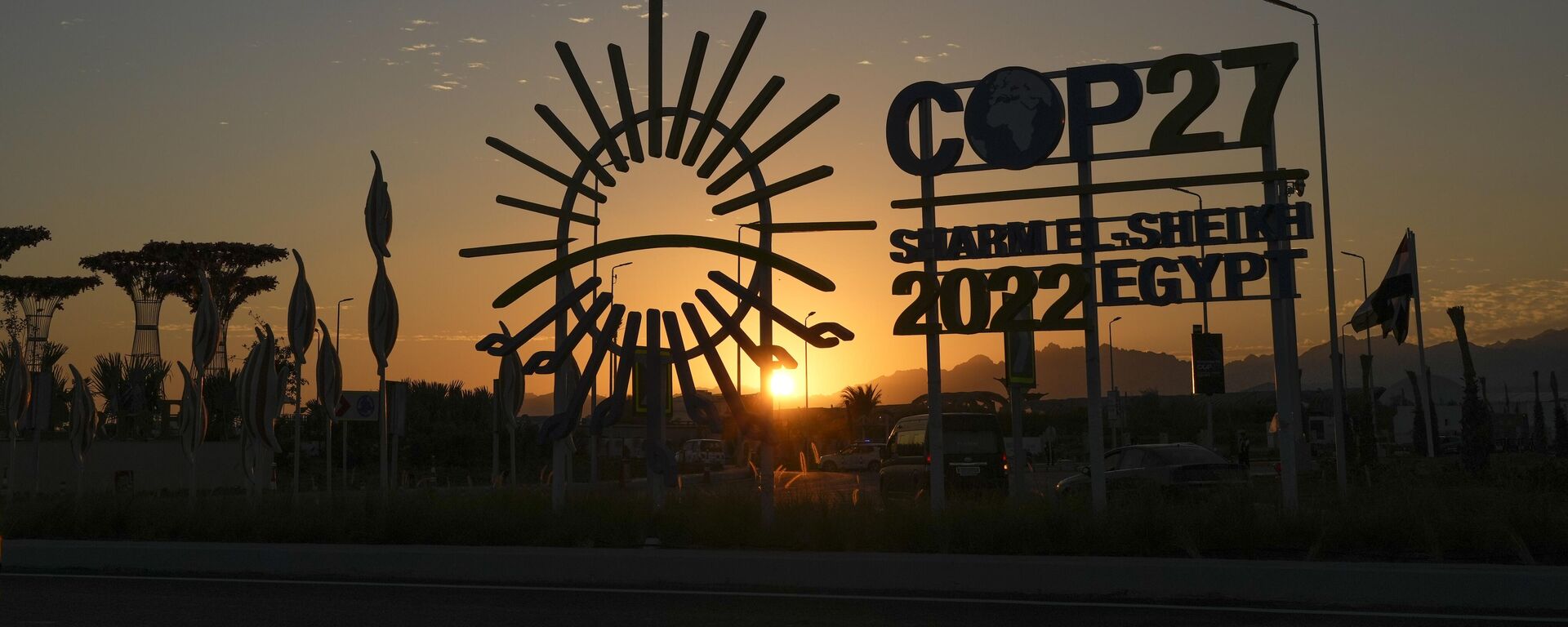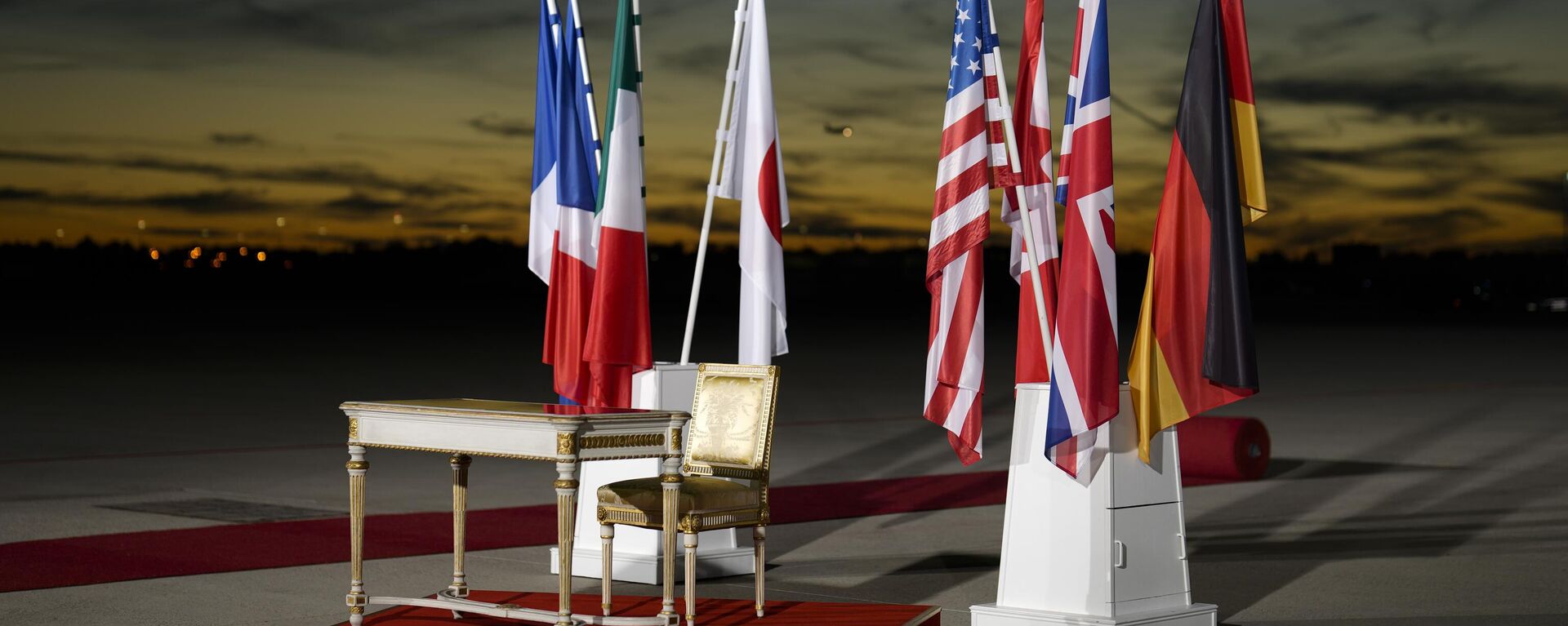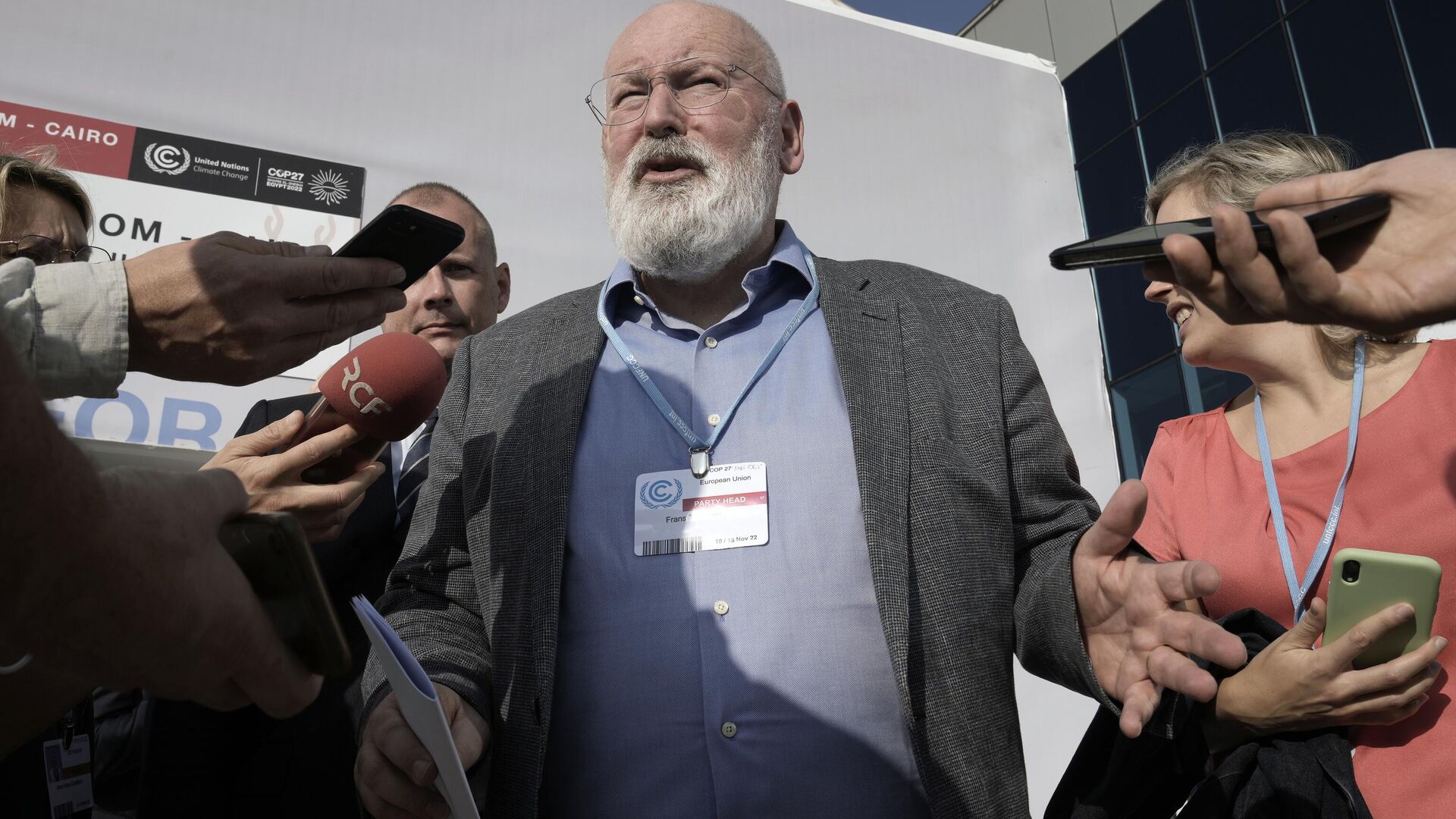https://sputnikglobe.com/20221117/eu-makes-new-promise-to-africa-on-climate-change-1104318434.html
EU Makes New Promise to Africa on Climate Change
EU Makes New Promise to Africa on Climate Change
Sputnik International
In this article you will read why EU pledges to fund climate adaptation in Africa
2022-11-17T11:06+0000
2022-11-17T11:06+0000
2023-04-12T17:15+0000
africa
climate change
cop27 in egypt
funding
loan
insurgency
france
germany
netherlands
denmark
https://cdn1.img.sputnikglobe.com/img/07e6/0b/11/1104325251_0:160:3073:1888_1920x0_80_0_0_089d634ee82a95f425da37c9777bf99d.jpg
The EU has pledged to allocate more than a billion euros to Africa to tackle the climate crisis, EU climate policy chief Frans Timmermans has said.According to Timmermans, the EU, France, Germany, the Netherlands, and Denmark have agreed to fund Africa's adaptation to changes in climate.He also said that the EU will set aside 60Mln euros to solve the issue of "loss and damage" to aid the most vulnerable countries in dealing with the consequences of climate change.The European politician's statement followed numerous calls from African officials for the allocation of funds to Africa which has been severely affected by climate change issues."If we want our continent to thrive, we have to adapt to climate change - and to achieve this, adaptation financing needs to start flowing at scale," Ghana President Nana Akufo-Addo pointed out at the same event.Speaking about climate justice, African leaders have repeatedly stressed the benefits of adaptation efforts.The new promise comes as the rich countries failed to fulfill their 2009 vow to mobilize $100Bln annually by 2020. In October, in response to a question about the famine in Somalia, a senior UN official claimed he had no idea what happened to the promised $100Bln a year. As a result, the climate affected countries, such as Somalia, still haven't received the promised money.So far, most of the western financial aid has been limited to the allocation of climate loans and insurances against potential natural disasters.On Monday, the G7 countries and the V20 group of 58 states, particularly vulnerable to climate change, launched a climate insurance scheme called "Global Shield", aimed at helping climate-vulnerable states to overcome the consequences of probable natural calamities. Nevertheless, a number of experts emphasized that “insurance is a method in which the victim pays, just in instalments in the beginning”, highlighting that it’s not fair for wealthy countries to profit off the vulnerable countries’ “loss and damage”.Meanwhile, in October, a $8.5Bln energy transition investment plan to South Africa was approved. The plan, funded by the US, UK, Germany, France and the EU, implies the African country’s transition from the usage of coal to alternative energy sources. However, the plan is agreed in the form of loans mostly, raising concerns about the probable growth of South Africa's debt burden. Notably, less than 3 percent of the assistance plan is grant-based.Along with the matter of the form of funding, there are also concerns about its adequacy. Recent research show that the climate-generated loss and damage is expected to reach up to $580Bln annually by 2030, thus, by 2050 scientists expect this figure to soar up to $1.8 trillion, which is many times more than the funds provided today.At the same time, according to the World Food Program, Africans are suffering from devastating floods and deadly droughts, which are severely affecting African agriculture and causing famine on the continent.Moreover, large-scale floods foster the spread of infectious diseases such as cholera, putting people's lives at even greater risk. Along with these, natural disasters, often the result of climate change, force people to relocate.“The worsening crisis and looming famine in the drought-stricken Horn of Africa shows how climate change can exacerbate water shocks, threatening the lives of hundreds of thousands of people and destabilizing communities, countries and entire regions,” Professor Petteri Taalas, secretary-general of the World Meteorological Organization, explained.
https://sputnikglobe.com/20221114/south-africa-environment-minister-urges-west-to-provide-immediate-climate-change-help-1104117290.html
https://sputnikglobe.com/20221115/g7-countries-announce-global-shield-climate-insurance-scheme-concerns-raised-about-fairness-1104225548.html
africa
france
germany
netherlands
denmark
Sputnik International
feedback@sputniknews.com
+74956456601
MIA „Rossiya Segodnya“
2022
News
en_EN
Sputnik International
feedback@sputniknews.com
+74956456601
MIA „Rossiya Segodnya“
Sputnik International
feedback@sputniknews.com
+74956456601
MIA „Rossiya Segodnya“
climate adaptation funding, climate chamge, climate summit, cop27, europe and africa
climate adaptation funding, climate chamge, climate summit, cop27, europe and africa
EU Makes New Promise to Africa on Climate Change
11:06 GMT 17.11.2022 (Updated: 17:15 GMT 12.04.2023) The "loss and damage" agenda, which aims to assist the most affected countries in dealing with the consequences of climate change, is being widely discussed at the COP27 climate change summit.
The EU has pledged to allocate more than a billion euros to Africa to tackle the climate crisis, EU climate policy chief Frans Timmermans has said.
According to Timmermans, the EU, France, Germany, the Netherlands, and Denmark have agreed to fund Africa's adaptation to changes in climate.
He also said that the EU will set aside 60Mln euros to
solve the issue of "loss and damage" to aid the most vulnerable countries in dealing with the consequences of climate change.
The European politician's statement followed numerous calls from African officials for the allocation of funds to Africa which has been severely affected by climate change issues.
"Africa does not contribute more than 3 percent of global greenhouse gas emissions, but suffers disproportionately from its negative consequences," African Development Bank President Akinwumi Adesina said in September, after most of the European countries ignored the Global Center for Adaption (GCA) summit in Rotterdam, the Netherlands.
"If we want our continent to thrive, we have to
adapt to climate change - and to achieve this, adaptation financing needs to start flowing at scale," Ghana President Nana Akufo-Addo pointed out at the same event.

14 November 2022, 15:57 GMT
Speaking about climate justice, African leaders have repeatedly stressed the benefits of adaptation efforts.
“Paying for climate adaptation is cheaper than paying the bills every time there is a climate disaster,” Akufo-Addo stated in September.
The new promise comes as the rich countries failed to fulfill their 2009 vow to mobilize $100Bln annually by 2020. In October, in response to a question about the famine in Somalia, a senior UN official claimed he had no idea what happened to the promised $100Bln a year. As a result, the climate affected countries, such as Somalia, still haven't
received the promised money.
So far, most of the western financial aid has been limited to the allocation of climate loans and insurances against potential natural disasters.
On Monday, the G7 countries and the V20 group of 58 states, particularly vulnerable to climate change, launched a climate insurance scheme called "Global Shield", aimed at helping climate-vulnerable states to overcome the consequences of probable natural calamities.
Nevertheless, a number of experts
emphasized that “insurance is a method in which the victim pays, just in instalments in the beginning”, highlighting that it’s not fair for wealthy countries to profit off the vulnerable countries’ “loss and damage”.
Meanwhile, in October, a $8.5Bln energy transition investment plan to South Africa was approved. The plan, funded by the US, UK, Germany, France and the EU, implies the African country’s transition from the usage of coal to alternative energy sources. However, the plan is agreed in the form of loans mostly, raising concerns about the probable growth of South Africa's debt burden. Notably, less than 3 percent of the assistance plan is grant-based.
Along with the matter of the form of funding, there are also concerns about its adequacy.

15 November 2022, 14:33 GMT
Recent research show that the climate-generated loss and damage is expected to reach up to $580Bln annually by 2030, thus, by 2050 scientists expect this figure to soar up to $1.8 trillion, which is many times more than the funds provided today.
At the same time, according to the World Food Program, Africans are suffering from devastating floods and deadly droughts, which are severely
affecting African agriculture and causing famine on the continent.
Moreover, large-scale floods
foster the spread of infectious diseases such as cholera, putting people's lives at even greater risk. Along with these, natural disasters, often the result of climate change, force people to relocate.
“The worsening crisis and looming famine in the drought-stricken Horn of Africa shows how climate change can exacerbate water shocks, threatening the lives of hundreds of thousands of people and destabilizing communities, countries and entire regions,” Professor Petteri Taalas, secretary-general of the World Meteorological Organization, explained.




